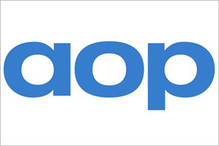
With the line between advertising and editorial becoming increasingly blurred, the Association of Online Publishers has taken an interest in how media outlets can take advantage of branded content without losing readers' trust.
Bauer Media last year set up a dedicated division called Bauer Access to bridge the gap between advertorial and sales and work on advertiser-funded content across the group's radio and TV outlets, magazines and online.
Recent projects have included a series of celebrity interviews funded by Orange that featured on radio stations such as Kiss and Kerrang! and in the group's music magazines including Empire and Q, and a series on dating sponsored by Cornetto.
Speaking at an AOP conference in London today, Bauer Access creative director Joseph Evea said advertisers appreciated having access to magazine and website editors to discuss partnerships.
"Our editors and our programmers create engaging content every day. They do that for a living and they have an intimate knowledge of the audience. The trick for us to combine it with third parties," he said.
On the potential risks, he said: "It's really important that you provide a dedicated resource to create this content. If the right systems are in place, branded content can really pay."
The potential exists in business-to-business publishing as well, according to Tony Hallett, the UK publishing director of CBS Interactive, which publishes sites including CNet UK, ZDNet and Silicon.com.
However he warned that publishers had to make sure that a publication's reputation was not damaged in the pursuit of revenue in the short-term
"Over the years we've respected this dividing line [between advertising and editorial], but now more than ever they are colliding," he said.
Hallett said readers' tolerance towards advertiser-funded material varied considerably. Signposting branded content to readers was essential.
"The tradition of impartiality is still really important to us and we have to tread carefully. Being clear and transparent is essential. Trust is the thing that will keep us going.
"Would we put our mobile phones reviewer in front of a client when the next day she's going to be at a press conference asking difficult questions? No, I don't see that happening.
"But I'm happy for that person's editor to be in the right meetings to explain how we connect with our audience. The editor has to be accessible to advertisers, being in the room with product marketers and salespeople."
Where does this move towards cross-platform, interactive advertising and branded content leave advertising agencies? Oliver Newton, head of emerging platforms at Starcom Mediavest says it has shifted the power away from the big media agencies back towards the publishers.
"Advertisers are creating their own online communities and bypassing media buyers," he told delegates. "Suddenly they can start marketing straight to the consumer. Agencies have had to evolve as a result to remain relevant."
Agencies, he said, used to be "the 140-pound gorilla in the room", "barking down the phone telling you guys [the publishers] what we want".
That attitude is now changing. "You guys will always understand your audience better than any agency," he added.
Free daily newsletter
If you like our news and feature articles, you can sign up to receive our free daily (Mon-Fri) email newsletter (mobile friendly).
Related articles
- Seán Wood, CEO of Positive News, on fighting news avoidance
- New app uses geolocation to help local publishers boost ad revenue
- Media Moments 2022 special with Peter Houston of Media Voices
- "Your reader's trust is something money cannot buy"
- Here's what new Guardian research tells us about commercial opportunities for podcasts









